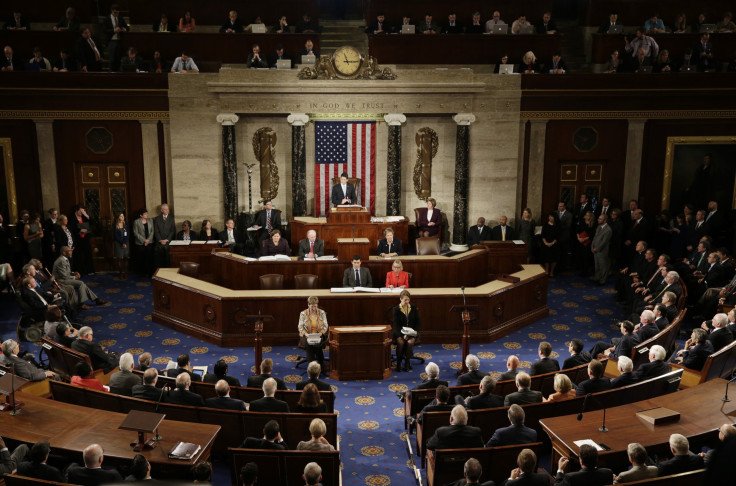Did Republicans Win The House? Full 2016 Election Results In The United States

Republicans will hold a controlling majority over Democrats when the 115th Congress takes office in January, ABC News and NBC News reported Tuesday. With every single seat up for grabs, Republicans pulled off enough victories to keep control of the House of Representatives for a fourth-straight election, denying Democrats a majority once again since 2008, according to the final election results.
The GOP was under fire and severely divided over presidential candidate Donald Trump’s campaign over the last 17 months, and fears of losing the Senate were far greater than those of the House going to the Democrats. However, the growing political divide within the party, which had already experienced a rift in 2010 due to the rise of the Tea Party, did leave Republicans vulnerable in states like Texas, New Hampshire, New York, California, Florida and others.
Those races mirrored swing state or battleground results for Republican presidential nominee Donald Trump and Democrat Hillary Clinton, whose campaigns hit the ground in Florida, North Carolina and Virginia on Monday, just before Election Day on Tuesday.
Heading into Election Day, of the 435 total House seats, Republicans held a 246 to 186 advantage over Democrats, who, after the 2014 mid-term elections, didn’t own a majority in either congressional chamber for the first time since 2006. Three of the seats were vacant and required special elections.
A vast majority of the races weren’t considered possibilities for Democrats. Only 40 of the 435 seats were “competitive,” Cook Political Report House election tracker David Wasserman told USA Today recently.
Another expert told USA Today that the lack of “real competition,” or rather a heavy focus on primaries rather than the general election, is the reason most House races haven’t been too fierce or even contested over the last few election cycles.
“When all you have to do is worry about winning the Democratic or the Republican primary, you move way too far left or too far right because you’re always worried about somebody primarying you,” Middle Tennessee State University political scientist Kent Syler said. “You’re not worried about the general election.”
© Copyright IBTimes 2024. All rights reserved.











